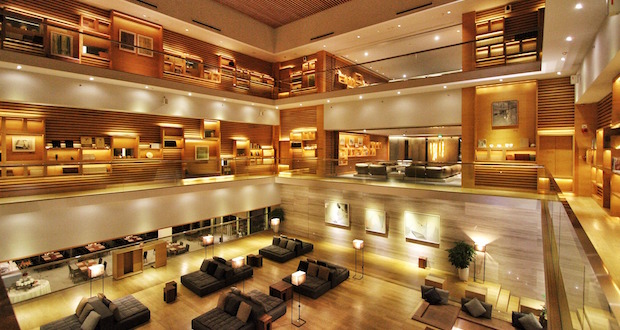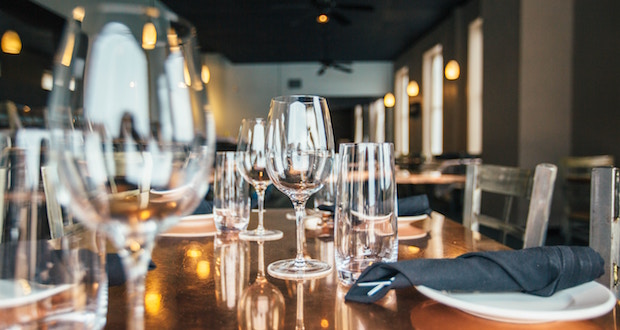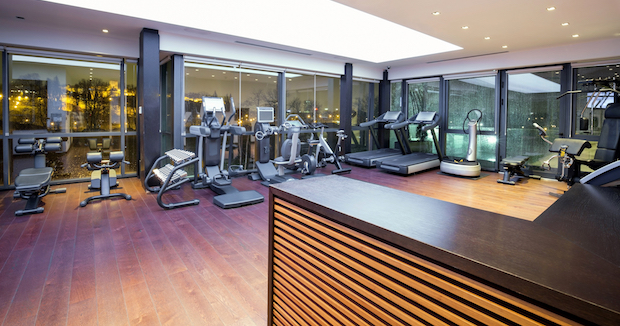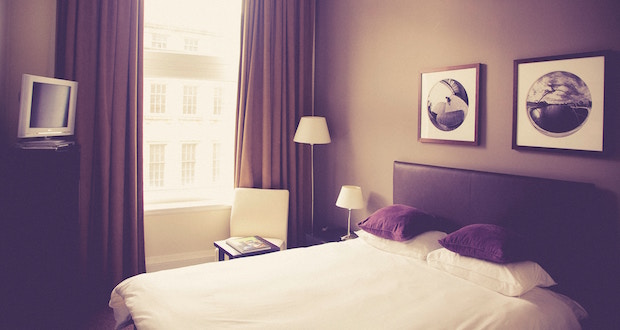Music affects us profoundly. It alters our mood and creates or triggers rich memories. It is no wonder that music in hotels has a big impact on guests.
Hotels are in the experience business. From the moment guests check in until they leave a review of their stay on social media, it is all an experience-based customer journey. It is tempting to think of individual parts of this journey as separate elements: interior design, service staff, atmospheric scent, room cleanliness, etc. It is important to understand that this is not how our minds work when it comes to evaluating an experience.
A simple example: If we ask you to focus on the feeling of the soles of your feet on the ground right now, you will notice a bunch of subtle sensations: temperature, texture, humidity, and a tiny itch, perhaps.
If we had not asked you to focus on these sensations, you would not have noticed consciously. Still, these sensations would have influenced your current mood and experience nonetheless. Our minds are masters at taking a massive amount of sensory input and summarizing, deducting, simplifying ,and distilling until we have a comprehensive and manageable “overall sensation.”
Time and again, studies show how music influences our mood, evaluation of service, purchasing behavior, loyalty, and many more variables. The most important factor to keep in mind is to make the music suitable to the context and situation. With modern technology, it is now easier than ever to pipe different music styles to different parts of a venue to make every interaction with guests count. Here are some concrete ideas to make music in hotels work.
The Lobby

This is where you make your first impression. The atmosphere should reflect who you are. Let there be no misunderstanding as to which hotel people are visiting. The decor, scent, staff, and music should all convey your brand image as clearly as possible. Secondly, it is smart to consider the mental state in which your guests arrive. Traveling is taxing on the mind and body and if your hotel is situated in a busy metropolitan street, this is the ultimate opportunity to provide your guests with a comforting sanctuary—perhaps a soothing, welcoming, and relaxing soundscape of jazzy or classical music. It all depends on your particular context and brand, of course.
Another thing to consider is music’s influence on time perception. As it turns out, different music styles have different effects on how we perceive the passing of time. Fast, loud, complex, and familiar music all make waiting times seem longer. So, if your check-in process sometimes takes a bit longer than you would like, it might pay off to play soft, slow, easy, and unfamiliar music in the lobby. Waiting times will be perceived as being shorter.
Bar & Restaurant

This is where you can quickly monetize your music. Slow music makes people act more slowly. It will lengthen the average visit and, yes, it has been studied that people take fewer bites per minute when dining with slow music in the background.
As an effect, it turns out that slower music results in higher spending on drinks, as people stay a bit longer and take some extra time for their conversations and meals. The same goes for softer music. If your aim is to keep people in your bar/restaurant and maximize revenues per guest, slow and soft music will do the trick. If your aim is quick turnover and multiple dinners per table per night with a buffet for example, faster and louder music is more suited.
Gym

As always, music has to be appropriate and valuable. In the gym, you might want to help people get into the vibe with some more energetic music. Think EDM (electronic dance music) or anything lively that suits your image. Keep the volume modest, as not all hotel gym users are hardcore body builders.
Pool

Pool or spa areas are generally better off with a more quiet vibe. Something subtle and relaxed might just take the edge off after a long flight or an intense day of business meetings. Try and find something close to your core brand sound and create a calmer version of it.
The Room

The room is a different experience altogether. Here, the guest needs full control. Why not put a Bluetooth speaker in every room so guests can hook up their own smartphones and enjoy their own music? Another alternative is to have your own branded selection of music offered on the TVs in-room. It is little details such as these that turn a good experience into a great one.
About the Author
Alex Bestall is the founder of Rightsify. Rightsify is a global music licensing agency based in Pasadena, California and provides music to hotels, restaurants, retailers and fitness centers in more than 30 countries.











